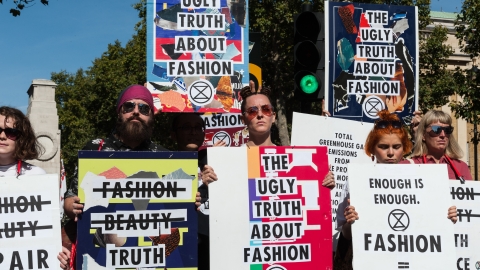Venice, the beautiful "city of canals" in northeastern Italy, is experiencing its second-highest floodwaters ever recorded. Heavy rains since November 12th have caused the water levels in Venice's canal system to rise, submerging ancient churches and leaving squares and alleyways in water.
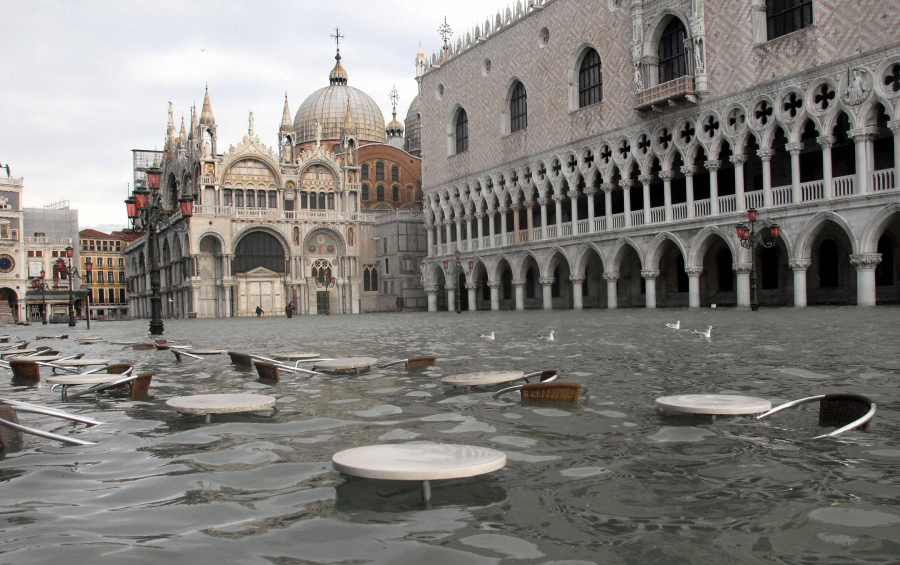
By November 14th, over 85% of Venice was flooded. Authorities predicting tidal surges in Venice had forecast a peak water level of 1.27 meters. However, continuous heavy rains caused floodwaters to rise to 1.87 meters, a record high in the past 50 years.
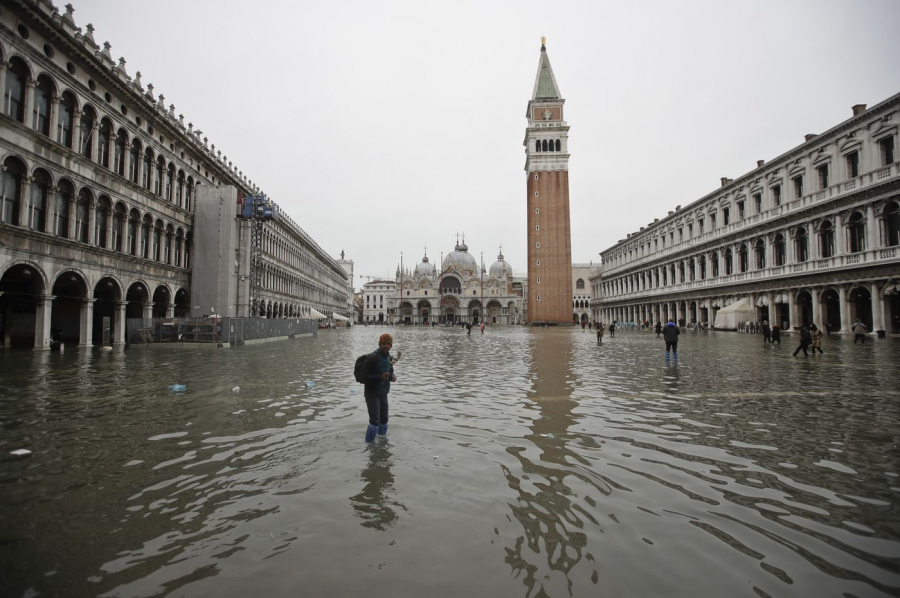
St. Mark's Square – one of the lowest areas of the city – was one of the most heavily damaged.
The city's mayor, Luigi Brugnaro, shared that the highest flood levels in over 50 years will leave a "permanent mark" on the city. He believes this is a consequence of climate change and that the price to pay is too high, so the government needs to listen and act. "The situation is very serious. We have asked the government for help."
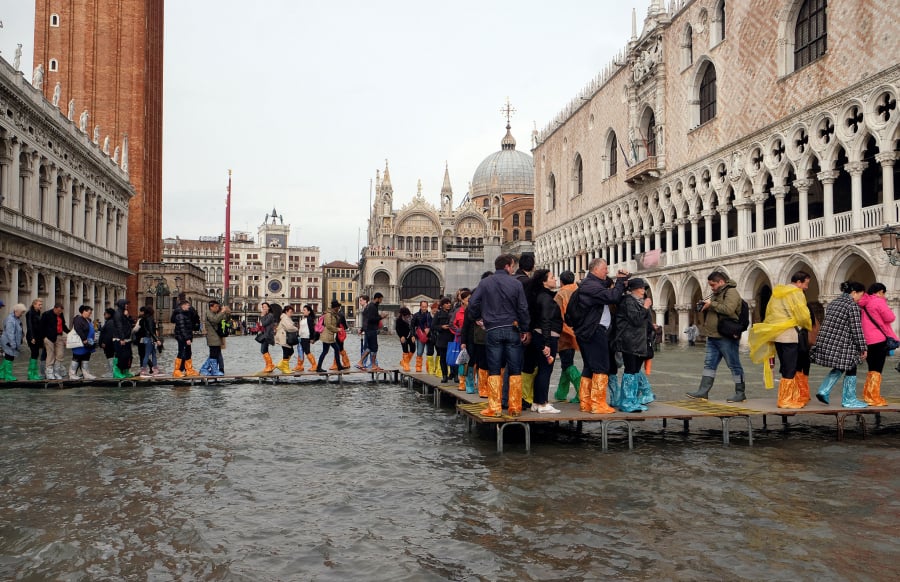
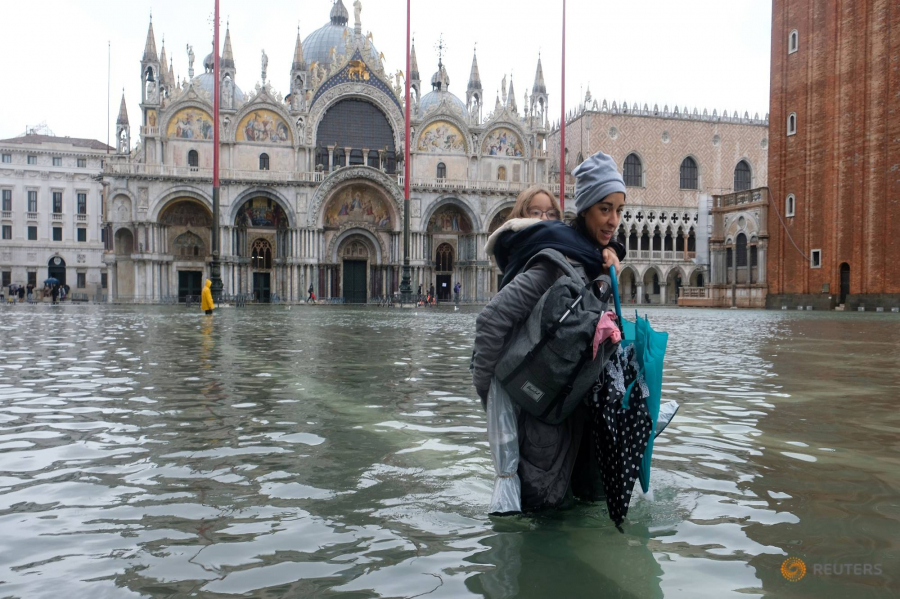
To date, the damage from the floods is "enormous," and authorities have declared a state of disaster, warning that a project to protect Venice from further flooding needs to be completed soon. Two people have died and three vaporetti (public passenger boats in Venice) have sunk in the flooding.
In addition, all schools and hospitals will be closed until the water level recedes. Authorities advise people not to leave their homes unless necessary. Local forces have deployed vessels to serve as water ambulances. Temporary platforms have also been set up for residents and tourists to walk on.
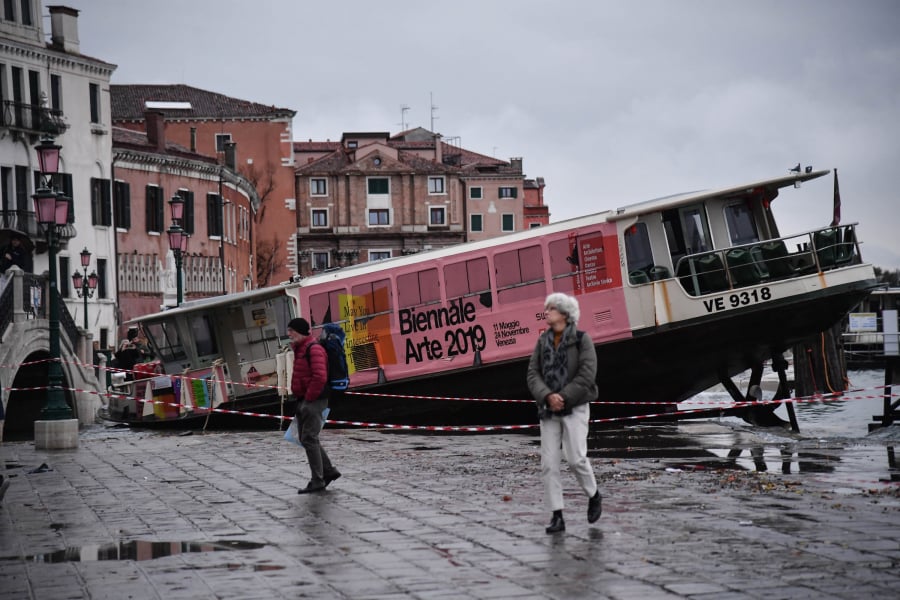
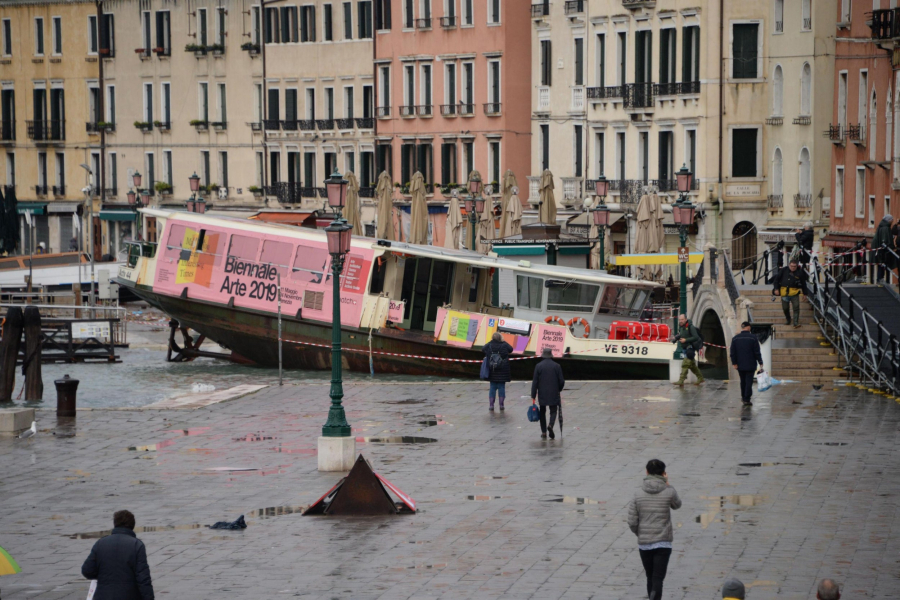
In fact, a project to protect the city from flooding had been underway since 2003 but had to be halted due to lack of funding, scandals, and delays.
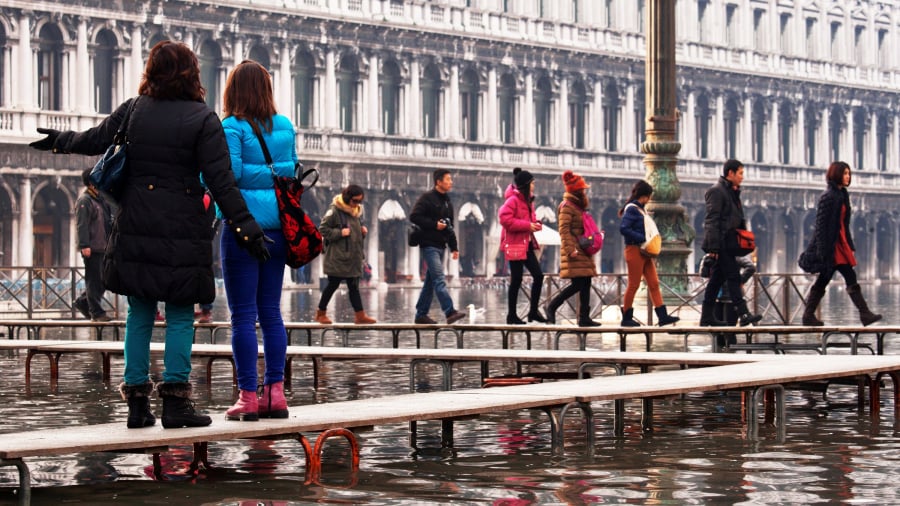
This flooding in Venice was caused by a combination of high tides and a meteorological storm with strong northeasterly winds over the Adriatic Sea. When these two phenomena combine, they create an event called Acqua Alta (high water).
In a climate of constant change, sea levels are rising, and a city like Venice, which is gradually sinking, is highly vulnerable to these changes. The ever-increasing frequency of tides is a testament to this.
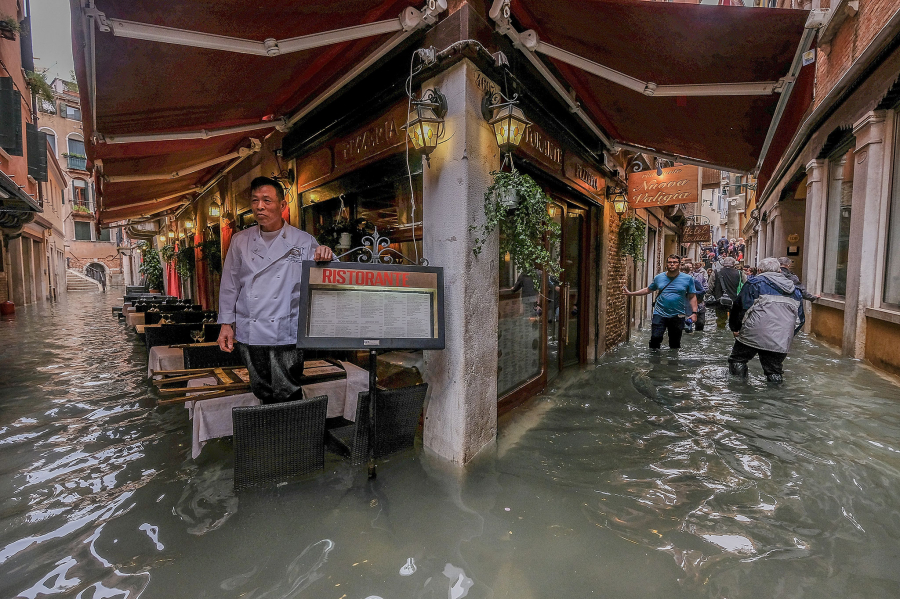
"The unusual flooding in Venice is caused by climate change, and it will not happen every 50 years as before, but every 3-5 years," said Alexey Kokorin, Director of the Energy and Climate Program at WWF Russia.
Weather is forecast to worsen in the coming days and travelers are advised to exercise caution. The Basilicata, Calabria and Sicily regions are also on maximum alert as heavy rain and strong winds continue across southern Italy.

 VI
VI EN
EN

























